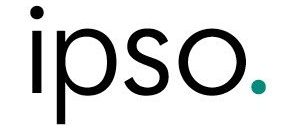Over the last few years, The Independent Press Standards Organisation (IPSO) has proven that it is not fit for purpose and not fit to defend those who may be harmed by irresponsible journalism. Greg Potts questions why we still haven’t sorted the regulation of our press.
Let me start by saying we must have a free press to remain a democracy. Journalists must be free from the Government, the legislature and religion and they must be allowed to question, investigate and criticise them.
For example, abuses in the Catholic Church would never have been exposed without that freedom.
Worryingly, the UK recently slipped to 40th place in the 2017 World Press Freedom Index, just above Belize and Burkina Faso.
However, journalists need to be wary of using the ‘free press’ or freedom of speech to create fear of certain groups of people, as Trevor Kavanagh did in his Sun piece and as many others have done before. IPSO have since proven that they are not the organisation we need to regulate our press.
In her column in The Sun in 2015, the ever-lamentable Katie Hopkins described migrants fleeing their homes during the refugee crisis as a ‘plague of feral humans’ and said: “Make no mistake, these migrants are like cockroaches. They may look a bit ‘Bob Geldof’s Ethiopia circa 1984’, but they are built to survive a nuclear bomb.”
Predictably, IPSO received over 400 complaints about the article and unfortunately, but predictably, found that the article had not breached section 12 of the editor’s code (discrimination) as: “Clause 12 is designed to protect identified individuals mentioned by the press against discrimination, and does not apply to groups or categories of people.”
This was a blatant attack on a group of people whose lack of access to the media denies them the right to reply and sadly, the same could even be said for Muslims in Britain today.
Kavanagh has no right to vilify a whole section of our society and IPSO have once again hidden behind the wording of clause 12 to avoid angering their friends and colleagues in the industry and rejected Elgy’s complaint.
The independence of the organisation is also made a mockery by Kavanagh being on the board of the regulatory body that is investigating his own article.
To be truly independent and avoid a conflict of interest we must surely have former journalists and former editors making up IPSO’s board and committees.
Unfortunately, our press regulation problems in the UK are not just with IPSO. The state backed regulator Impress goes too far the other way and has begun to limit the freedom of newspapers, even though none of them have signed up to it.
The government is blackmailing papers who do not sign up by forcing them to pay the full legal costs of anyone who sues for libel, a notoriously expensive past-time, even if the paper is found not guilty.
Impress is also part-funded by Max Mosely, who seems to be on a one-man mission to limit the freedom of the press to criticise the powerful after the News of the World published details of his questionable orgy in 2008.
It seems as though we have come no closer to an effective regulator of the press since the Press Complaints Commission was forced to close after its response to the phone-hacking scandal, where their report seemed to clear the News of the World and reprimanded the Guardian for its revelations.
There is no question that this is a difficult balance to strike and we must allow the press freedom to investigate and criticise but we cannot stand for a regulator that rolls over when those like Hopkins and Kavanagh are using their platform to spread hate.
The Sun must be made to apologise for this language that could encourage racism and discrimination, and IPSO is not the organisation to achieve this.

